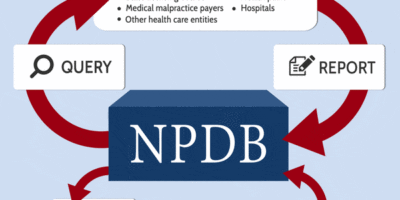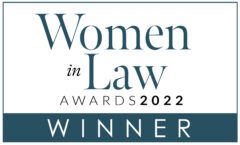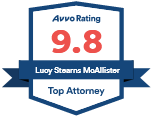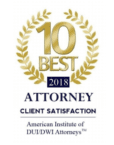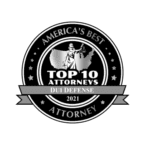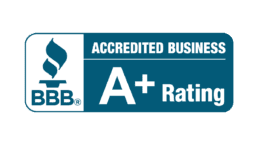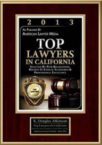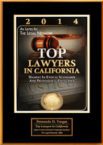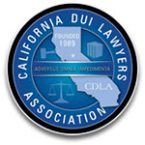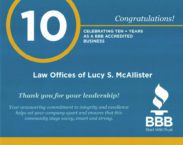California Pharmacist and Pharmacy Technician Professional License Defense
In California, pharmacist & pharmacist technician licenses are regulated by the California Department of Consumer Affair’s Board of Pharmacy, which administers pharmacist licensing examinations, issues pharmacist technician and pharmacist licenses, and enforces pharmacy regulations, all with the mission of protecting the public.
According to California Pharmacy Law, an allegation of unprofessional conduct or a criminal conviction by the Board of Pharmacy will threaten your pharmacist license. If you have obtained your professional pharmacist license in California, you have undertaken a long, complex, and expensive process. However, people do make mistakes and these can sometimes undo everything.
If you have received a letter or notification about your California pharmacists license, you need the assistance of an experienced professional license defense attorney like Lucy S. McAllister to minimize the impact on your license and livelihood.
Get Expert Legal Help Now!
Please call the Law Offices of Lucy McAllister toll free at (877) 280-9944
What Triggers a CA Board of Pharmacy Disciplinary Action?
A complaint initiated by a patient or employee to the California Pharmacy Board is known as an Accusation and this begins the formal process. There are many different actions and mistakes that may draw the attention of the Pharmacy Board, even those incidents that you never considered potentially dangerous for your license. The acts that may trigger a disciplinary proceeding are reviewed in the context of the health, welfare, and safety of the public and the consumer and what threat the alleged unprofessional conduct poses.
It is advisable for any pharmacist who has been accused of unprofessional conduct to immediately retain an attorney and not talk to the Pharmacy Board or any lawyer from the Office of the Attorney General, who will be representing the Pharmacy Board during the disciplinary action. There are many different actions and mistakes that may draw the attention of the Pharmacy Board, even those incidents that you never considered potentially dangerous for your license. The acts that may trigger a disciplinary proceeding are reviewed in the context of the health, welfare, and safety of the public and the consumer and what threat the alleged unprofessional conduct poses.
The Board may institute an investigation before issuing an Accusation. A pharmacist should not volunteer any information when faced with an initial inquiry, whether written or in person. Getting an experienced professional license attorney such as Lucy S. McAllister involved in the proceedings at this stage may lead to an immediate resolution of the problem. At the very least, it will take the burden of the investigation off of your shoulders.
Criminal Convictions Impact on California Pharmacist License
Many pharmacists are surprised by an Accusation filed on the basis of a past misdemeanor conviction which can be related to an action that is not in any way related to the professional responsibilities of a pharmacist. However, the test for the Board of Pharmacy is whether the underlying crime associated with the conviction is substantially related to the duties of a pharmacist. In order to be substantially related, a conviction must demonstrate actual or potential unfitness of the licensee to fulfill the mandates of the profession and act in furtherance of public health, safety, or welfare. Driving under the influence (a DUI) is one of the most common convictions and generally this is considered substantially related to the fulfillment of professional duties as to warrant disciplinary action by the Pharmacy Board.
There are a number of crimes that the Pharmacy Board has determined to be substantially related to the work of a pharmacist technician or pharmacist, including:
- Driving under the influence (DUI)
- Forging prescriptions
- Drug-related crimes
- Theft, including petty, identity, and grand theft
- Engaging in a lewd act with a minor
The Board of Pharmacy can independently evaluate whether other crimes are substantially related to performing the duties of a pharmacist. The Board does have Disciplinary Guidelines that categorizes types of crimes and contains recommendations for disciplinary actions, including probation starting at three to five years along with the potential for suspension or revocation of the license for more serious crimes. For less serious unprofessional conduct, the pharmacist may face suspension of his or her professional license for thirty (30) days, or more.
Professional license defense attorney Lucy S. McAllister understands the license defense process and work on your behalf to get you the minimum penalty possible if you have been convicted of a crime. The Board has a lot of latitude with what qualifies as a conviction, including “no contest” pleas, as well as verdicts and negotiated pleas.
A pharmacist may believe that he will not face an Accusation because he participated in a court-approved alternative resolution program and completed all the requirements; however, the Board still can decide to pursue disciplinary action. The Board typically waits until the time for appeal has expired, a conviction was upheld on appeal, or the court has issued an order for probation before taking any action. There is a mechanism for expedited disciplinary action that may be invoked if the conviction was for a felony that resulted in jail time, the conviction involved the sale of a controlled substance, the victim was a patient of the pharmacist, or the crime was convicted while the licensee was performing duties related to his or her license.
Challenging an Accusation by the California Board of Pharmacy
If you have been notified about an Accusation, the best thing that you can do is retain a qualified professional license defense attorney. It may be possible to negotiate a resolution that limits the discipline imposed. If a negotiated settlement fails, then there will be an opportunity for an Administrative Hearing before an Administrative Law Judge and you want someone who understands the administrative process implicitly. The hearing before the judge is similar to a court action, where you will have the opportunity to present evidence and cross-examine witnesses offering testimony against your case. However, there are significant evidence-based and procedural rules that only apply in this type of hearing, which an experienced attorney such as Lucy S. McAllister understands. The Office of the Attorney General will have a lawyer representing the interests of the Board of Pharmacy during the proceedings. Prior to the hearing, the parties will have the chance to engage in “discovery,” seeking evidence to support each side’s position. This is a very important way to find out the strength of the Board’s case. All of this is extremely time-sensitive. A licensee only has fifteen days from receipt of the Accusation to request an Administrative Hearing.
It is important to note that the Administrative Law Judge is an independent party and is not aligned with the Pharmacy Board. Because the Pharmacy Board is trying to strip you of your license and your career, the burden lies with the Board to prove that you should not be allowed to keep your license.
After the hearing, the judge issues a “proposed decision” that is a recommendation for the Pharmacy Board. Although the Board will adopt this decision in most cases, it has 100 days to consider the recommendations and then may issue an order that goes against the judge’s proposed decision.
If the Pharmacy Board issues an order disciplining a licensee, there is another avenue of pursuit to protect the license before suspension or revocation. A Writ of Administrative Mandate may be filed, requesting the Superior Court review the administrative proceedings. If the Superior Court does review the case, it is not an opportunity to present new evidence or re-argue a position, it simply is a review of whether the hearing was fair.
Results of a Pharmacy Board Determination
In making its decision about what disciplinary action is appropriate, the Pharmacy Board must consider evidence about the rehabilitation of the licensee as well as other mitigating factors, including:
- The licensee’s remorse or attempts to make restitution;
- Character references from employers or officials involved in the legal proceedings;
- How long it has been since the conviction and the lack of any new charges in that time period;
- Participation in relevant therapy or counseling; and
- Involvement with volunteer activities or other types of philanthropy.
The reason for considering a broad range of factors is that the California Pharmacist license disciplinary proceeding is not viewed as a punitive action, but rather is an evaluative process to make sure that the public is not in any danger from the licensee continuing to practice. A professional license attorney can put together the best possible case for the Board to consider by working with her client to follow a strategic plan for mitigation. Even if the Accusation does result in the loss of a license, a pharmacist technician or pharmacist may apply for reinstatement. At that time, the Board will review the evidence of rehabilitation in its entirety.
Although an attorney can provide invaluable assistance at every stage of the proceedings, for the best results, a licensee should retain a skilled professional license defense attorney as soon as he or she becomes aware of the Accusation or a pending disciplinary action. When you learn about a pending or possible disciplinary proceeding, it may be tempting to fight it on your own, but this is the worst thing that you can do. A professional license defense attorney like Lucy S. McAllister has the expertise to ensure that you can keep your license or get back to work as soon as possible.
To discuss a complaint that may impact your pharmacy, pharmacist technician, or pharmacist’s license, please call the Law Offices of Lucy McAllister toll free at (877) 280-9944 to schedule an initial consultation to discuss your specific case.


